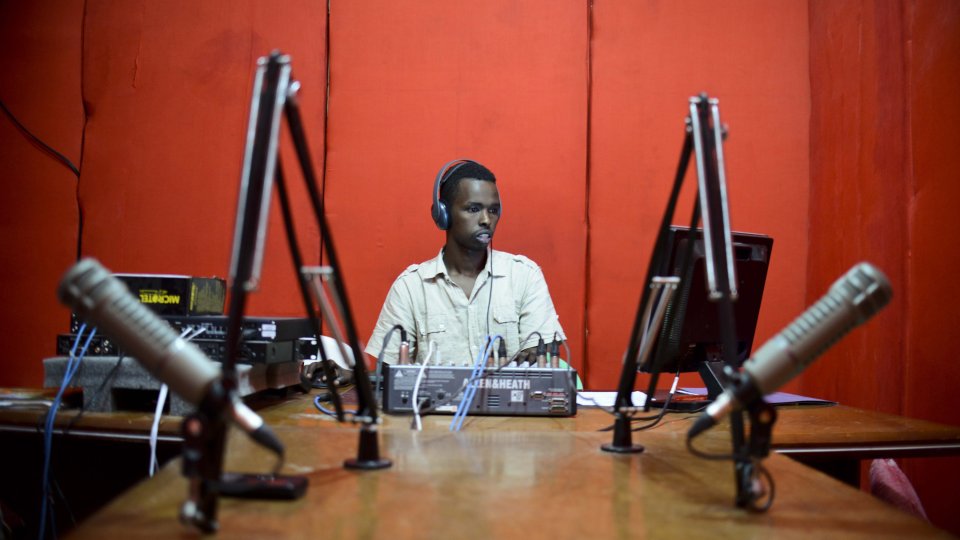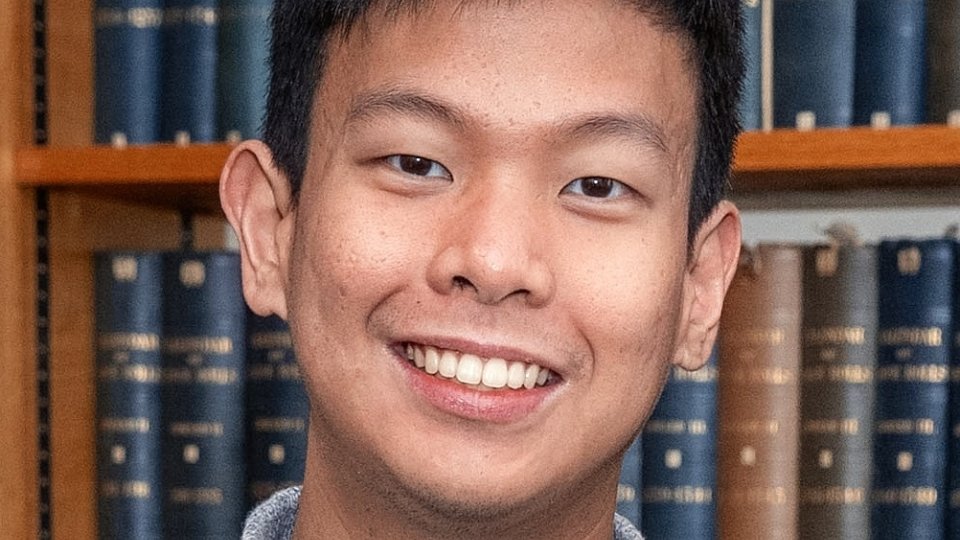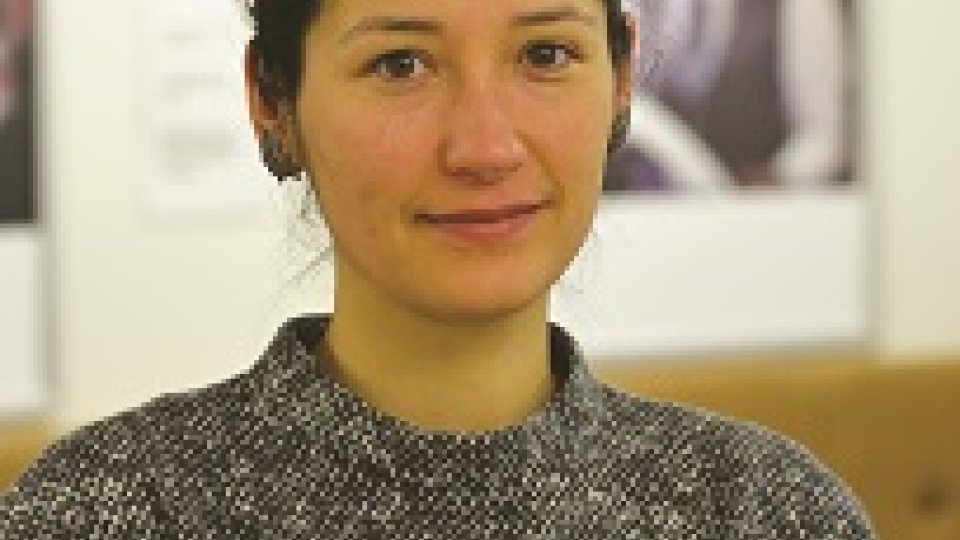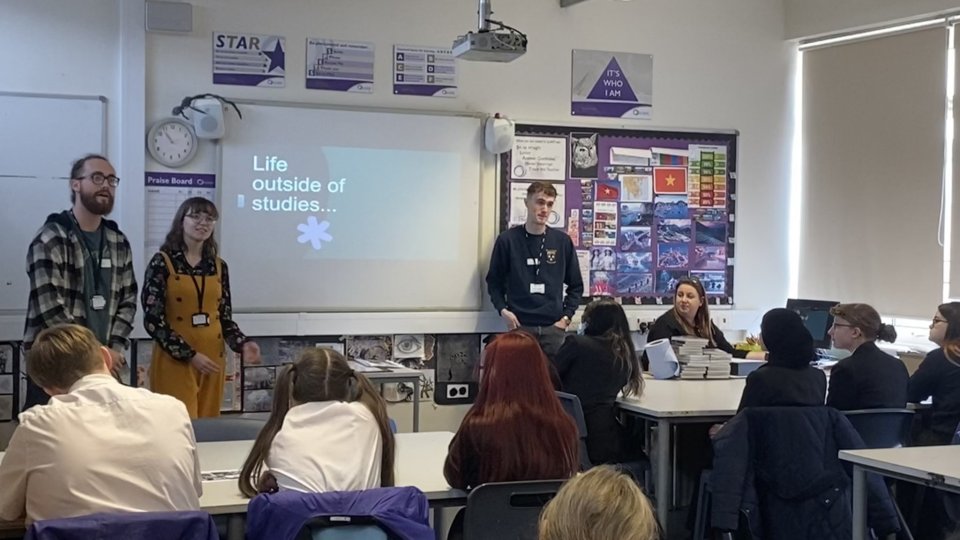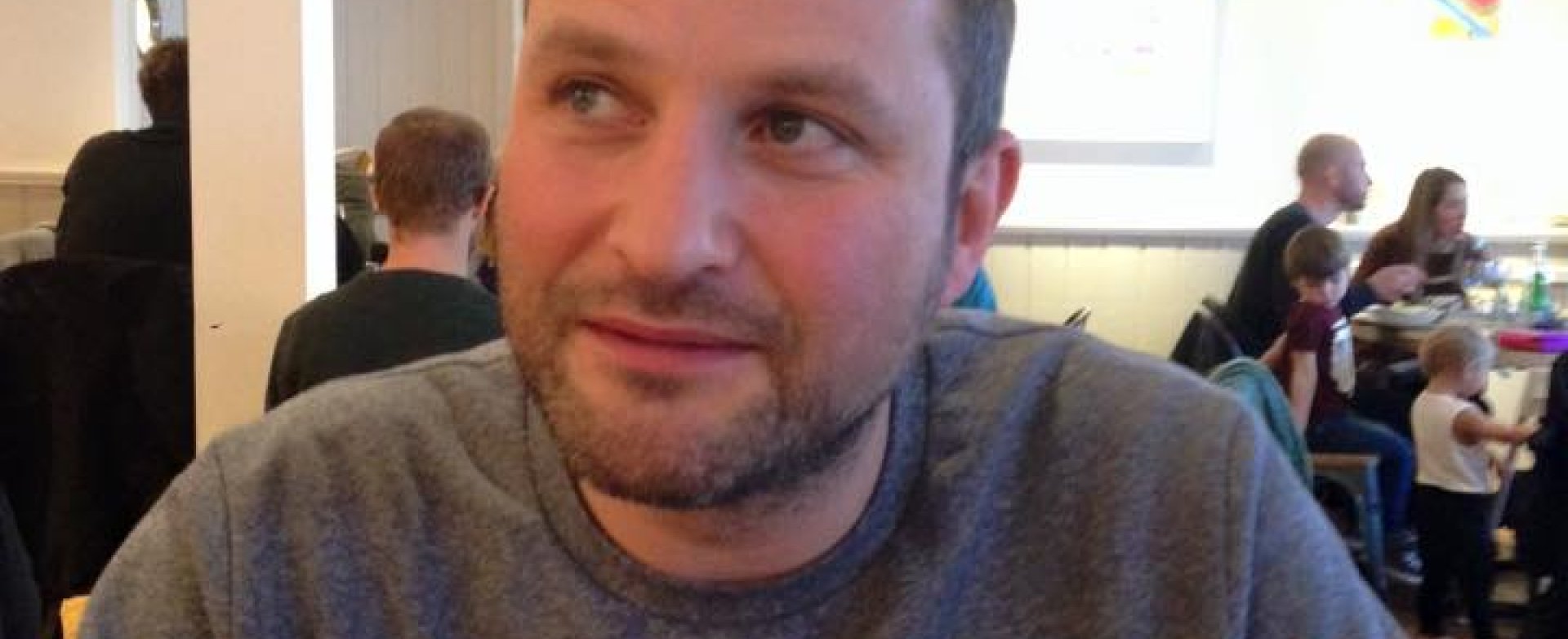
Saul Walker (KC 1989) is the Deputy Director of COVID-19 Vaccines, Therapeutics and Diagnostics at the Foreign, Commonwealth and Development Office (FCDO). Saul has worked extensively in the areas of treatment activism, public health and global access to medicines, and was awarded an OBE for services to International Development in the 2021 New Year Honours. At the end of January we caught up with Saul to discuss some of the successes and challenges of the past year, his aspirations for the vaccine rollout, and the importance of collaboration in addressing global health inequalities.
Let’s start by taking you back to February and March of last year. How did your professional life change at that time? Was there an overnight downing of tools and picking up of new ones, or was there a bit more continuity with what you were doing?
In February I was leading the UK response on Ebola in the Democratic Republic of Congo, but started working on COVID-19 when we were beginning to understand the potential for pandemic spread, and what the possible impact might be in different countries. At that stage we were very much learning as we were going along, and it took a bit of time to realize the scale of the disease and how quickly it was spreading. But quite soon it became very apparent that we needed a response which involved the whole department rather than just a couple of people, so a joint task-force across DFID and FCO (before the departments were merged this autumn) was set up and I moved from providing general strategic thinking to working specifically on vaccines, therapeutics (treatments) and diagnostics (tests) – the tools that we would need to combat the disease.
So that really got going from the end of March and I then began to pull a team together around me to work out how the UK could play a role not just in the development of new technologies, but also in ensuring that those technologies could get to the people who need them. That provision of access to medicines had been the focus of much of the work I’d done in the late 90s on HIV and treatment activism, and later at DFID, so it felt like I was drawing on those experiences but seeing everything on a really accelerated time-frame.
It’s clearly a huge operation, but what has your primary attention been on over the past year?
My focus has been on ensuring that we have the appropriate products and the mechanisms to deliver them on a global level – particularly to lower- and middle-income countries. To do that at the scale and speed necessary we need multilateral approaches, and there’s a significant amount of international collaboration with other countries and some of our major partners like GAVI, the vaccine alliance, the World Bank and others. That collaboration is crucial in finding a global solution to the pandemic.
Could you discuss in a bit more detail what those products are, and give a sense of where we’ve come from since the beginning of the pandemic?
Last February we didn't have any of these tools, except for some PCR testing technologies that could do lab-based viral tests. But, in developing countries in particular, access to those lab-based technologies is very limited. So from the outset there was a strong focus on trying to develop tests that could be used ‘in the field’ – rapid diagnostic tests or point-of-care tests that could quickly identify people who were infected and which would then facilitate track-and-trace initiatives and the usual approaches to infectious disease containment.
On the therapeutic side, there was initially a big research push to see whether there might be existing drugs that would be effective against COVID-19. On top of that, FCDO has a Research and Evidence department that specifically invests in product development for low- and middle-income country settings, so they worked with some of our research partners to begin to contribute to international efforts in that area. We also – through our engagement with the WHO and others – were able to influence those research agendas, including championing products that could be used in low- and middle-income settings – so not just coming up with products that were only going to be deliverable in high-income settings or strong healthcare systems, but tools that could be used more broadly.
Where vaccines were concerned, we began pushing the research agenda quite early on through FCDO investment in an organization called CEPI (Coalition for Epidemic Preparedness Innovation), and at the emergency G20 Leaders’ summit in March 2020 the Prime Minister announced a £250 million UK contribution to CEPI to drive collaborative approaches to vaccine research. The UK was the largest donor to CEPI in 2020.
So back in those days it was really about trying to move these agendas forwards on Research & Development (R&D) and also to start to get some collaboration going internationally so that we could see a more coordinated approach.
How far have we come over the past twelve months? Have there been areas in which we’ve seen more progress than others?
Interestingly what moved fastest were vaccines. Usually it takes five to ten years to develop a vaccine and get it approved, but the Pfizer vaccine was taken from development through approval in 303 days which is just incredible, and the AstraZeneca/Oxford vaccine wasn't far behind.
On diagnostics, we've seen innovations in rapid tests that can be used in the field and costs have come down. Rapid tests can be most accurate during a certain window when someone has COVID-19, so while they are a really important public health tool it’s important to be clear on for what and how they’re used.
We've seen some promising results in treatments but we know there is more to do. UK investment in rigorous “Recovery” clinical trial platform identified that the cheap drug dexamethasone, which is a steroid, works for people who've got serious COVID-19 symptoms. But we are looking to find something that works effectively and easy to deliver for people with earlier-stage illness.
Early on in the pandemic there was widespread alarm about the potential impact of COVID-19 in countries – particularly in sub-Saharan Africa – with high population densities, limited economic resources and what we might consider to be weaker healthcare systems. By the summer that alarm had largely dropped off the mainstream narrative – is that a product purely of media bias towards events affecting the UK, or is there a genuine sense that the virus hasn’t had as significant an effect in those countries as first feared?
It's been quite mixed; there are countries where we’re seeing very significant levels of infection, such as India, South Africa and Brazil, but at the same time we haven’t seen high levels of infection across the rest of Africa, or the levels of direct mortality that at one point we thought we might see. Some of this will be driven by under-reporting but also different infections patterns. These are probably driven by a range of things that we're still trying to understand, one of which is that the age structure in Africa is much younger than most high-income countries [less than 4% of African populations are over 65, and the average age in Africa is 20 – as opposed to about 40 in the UK] so we’re generally seeing less serious illness. Early on we didn't know whether other factors like pre-existing conditions – higher levels of HIV, for example – might have an impact, and we’re still learning about transmission in different settings.
However, what we have seen are very high secondary impacts – the impacts of things like restrictive measures, lockdowns and so on – which have had major effects on people who are living day-to-day: on their household incomes, often on their nutrition, and on their access to other basic services. The World Bank estimates that COVID-19 will push over 100m people back into extreme poverty. In countries that have got very low coping capacity, very low social protection provision, or weak healthcare systems, it doesn't take very much to tip those systems into crisis. And more widely we’ve seen COVID-19 have an impact on, for example, routine immunisation campaigns or on maternal and child health services. Those have been indirectly affected either by community fears about going into healthcare settings, or people not being able to travel or impact on healthcare workers. Often those secondary impacts are more significant than the direct impacts that we've seen from the disease itself.
What we’re also seeing now are second waves of infection in Africa and the emergence of new variants, such as the variant detected in South Africa, which does appear to be more transmissible. As a result we’re seeing both infections and mortality rates rise in Africa. So although we've avoided what could have been a bigger catastrophe the first time around, this is still evolving, we're still learning and those secondary impacts have really been very severe in a number of countries. The UK will offer its world-leading genomics expertise to identify new variants of the virus that causes COVID-19 to countries who do not have the resources to do so.
The vaccine has begun to be rolled out in the UK with some rapidity, but there are of course competing demands for the vaccine from other countries, blocs, and worldwide programmes. Where does the work of the FCDO sit within that framework?
For a long time the UK has been one of the major supporters of global immunisation – we've long been the largest funder to GAVI, which provides routine immunisation support for children across the world. When COVID-19 emerged it became clear that GAVI would be essential in any rollout of future vaccines to lower- and middle-income countries, so we worked quite closely with them, its partners and other key donors to push for a new initiative called COVAX. The idea of COVAX is to try and make sure that all countries have access to vaccines, and to do that in a collaborative way that can pool the risks and the costs of vaccine development, procurement and delivery.
As of today, the UK has committed £548 million to COVAX to support vaccine rollout in up to 92 lower- and middle-income countries. What we’re aiming for is to try and ensure that through 2021 we can at least get enough supply of safe and effective vaccines to those countries to immunise their highest priority populations – so healthcare workers, other frontline workers, and the most vulnerable groups. There’ll still be differences between what we see in richer countries and in poorer countries, but if we can do that it would be something truly historic – there’s usually a lag of at least ten years between a vaccine being introduced in the west and those vaccines being introduced at all in lower- or middle-income countries, so this would be at a speed and a scale that really hasn't been achieved before. We’ll then need to build on this base, particularly as we see COVID-19 continue to evolve and potentially move in to more endemic phase.
Do you feel any tension between the competing priorities of securing the vaccine for the national population and the UK’s international commitments?
Governments have their first priority to their own populations. The UK has been one of the most successful countries in securing a vaccines portfolio and now rolling out immunisation. We think we can do that in a way that’s balanced with our contribution and our commitment to collaboration internationally – including sharing the learning from our approach. If we can get the most vulnerable communities in all countries covered that would make a huge difference as global vaccination coverage is essential to beating coronavirus; if you could vaccinate health workers in countries that are already struggling with some of the secondary impacts, you could have a huge impact not just on COVID-19 but also on the ability of those health systems to deliver wider services. And then we need to plan for how to expand vaccination coverage further.
What are the additional challenges in rolling out a vaccine in a lower- or middle-income country – both in terms of practical hurdles and cultural facets?
It's an interesting question because you can see some of the challenges that we have doing this in the UK at the scale and the speed that we want to. One of the big challenges for COVID-19 specifically is that while we have pretty good systems for immunising children internationally, for COVID-19 we want to immunise adults, and we don't necessarily have the systems in place to reach those populations. Planning how to do that, and even identifying who those populations are in settings where demographic data is weak, isn't as easy as in the UK. Also, many people with underlying conditions won't have been diagnosed, so identifying who those vulnerable populations is difficult. Then putting in place the logistics and the supply to reach those populations is really challenging to do in many of the countries that we work in. This is particularly the case for some of the vaccines; you’ll have seen that the Pfizer vaccine needs an ultra-cold supply chain and that capacity just isn't available in many countries. So producing vaccines that can be more easily transported and more heat stable is really important to be able to get further coverage.
In terms of cultural factors, vaccine hesitancy or ‘anti-vaccine’ sentiments, unfortunately, is a global challenge - you see them quite prevalently in high-income countries too. But the basic fact is that you really need to work with local populations wherever you are; you need to engage communities early; you need to build trust; you need to have confidence that the products that you're going to deliver are safe and effective and that the supply chains have been secure. But certainly my experience of working in developing countries is that most families really understand the power of vaccination, particularly for their children, so there's a strong desire for access to vaccines. Of course, you have to involve local populations early in actually planning vaccination campaigns, and establish who the people are who are going to resonate with their communities and be able to address particular cultural concerns.
You've worked on multiple epidemics and pandemics, so I wonder if you could contextualize the global reaction to COVID-19 in relation to HIV / AIDS or other diseases which have disproportionately affected countries which we might loosely characterise as being part of the ‘global south’?
There have always been health inequalities but I think HIV was really important because it was one of the first times that you really saw a recognition of the differential impact of a disease in different settings become a wider public focus. Early on the kind of community activism in the west around HIV – around community mobilisation and also around the pressure for more investment in new therapies or better health promotion and HIV prevention – gathered apace over several years and began to break into the mainstream. Then you began to see activists and communities in developing countries – particularly Africa and Asia – working with activists in the north to share experiences and ideas to use at home but also for a more global campaign. I remember going to activist meetings in London in the 90s and you'd have Ugandans and gay men from East London and Americans and French activists coming together and sharing experiences and ideas. Once that happened you could see this difference between HIV treatments and the impact they were having in the west and then the lack of impact or availability of those treatments in the south, where the volume of HIV infections was highest. So HIV really seemed to crystallise some of that recognition of the need to think about global access in a new way.
From then on, I think we've seen a growing approach to try to improve the way that all countries have access to health products, so you had the emergence of organisations like the Global Fund – backed by UK aid - to fight AIDS, TB and malaria, which again tried to improve access to health technologies and health promotion in the south. You then had GAVI which got going in the early 2000s to increase access to immunisation, including newer vaccines like the Hepatitis B vaccine or the pneumococcal vaccine. And so over time you've got this recognition that we can do things to improve access to products and strengthen health systems and that we need a partnership to do that. When you're dealing with a pandemic, unless you can address a disease globally, you're not really going to have dealt with it at all.
Moving forward, does the scale and rapidity of the response to COVID-19 give you hope that we might be able to tackle other epidemics more effectively in future, regardless of how high up the western news agenda they might be?
Back in 2001 when I joined the International AIDS Vaccine Initiative we thought it was going to be ten years before we had an HIV vaccine, and we still don't have one. It's a very challenging thing to achieve but now that we’re seeing the emergence of new RNA and other vaccine technologies that act as platforms that can be adapted and scaled up quickly, there’s real potential to respond to new threats or to adapt vaccines as a virus evolves. If you said at the beginning of 2020 that we’d have safe, effective and approved vaccines in 303 days, everyone would have laughed; we all thought that even if you broke every speed record going that the minimum time would be 18 months. We won’t see the same results with every disease – but we do now have much better tools.
It’s important to remember that there's always a chain – you need to do the R&D, you need to do the manufacturing, you need to do the procurement at scale, you need to have the systems that can then start delivering things at scale, and you need to be able to finance and join all the dots along that pathway. We've learned a huge amount, and what COVID-19 has shown is that with focus and commitment, international collaboration, and political will, you can do things really quickly. It’s important that we now make sure that we build on this learning, keep those systems and processes in place, strengthen them, and respond even faster and more effectively in the face of future health threats.
Interview by Jonty Carr
26th January 2021
